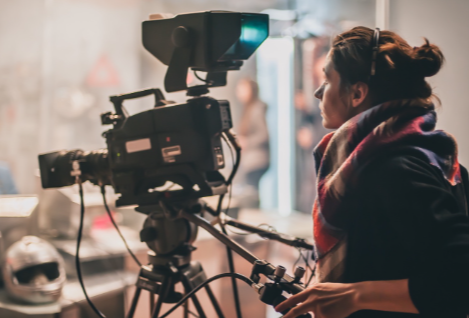
Film production is a complex and multifaceted endeavor, involving numerous moving parts and significant financial investment. Given the scale and scope of many productions, the potential for costly delays and accidents is a constant concern. Film insurance is designed to mitigate these risks, providing crucial protection for both independent filmmakers and large studios.
This article looks at how film insurance can safeguard your production from unexpected setbacks.
Ways That Film Insurance Can Safeguard Your Production from Costly Delays and Accidents
1. Understanding Film Insurance
Film insurance encompasses a range of coverage options tailored to the specific needs of film and television productions. These policies are designed to protect against various risks, from equipment damage and cast illness to natural disasters and accidents on set. By securing comprehensive film insurance, producers can ensure that their financial investment is protected, even when unforeseen events occur.
2. Protecting Against Cast and Crew Illness or Injury
One of the most significant risks in film production is the potential for illness or injury among cast and crew members. If a key actor falls ill or is injured, production schedules can be severely disrupted, leading to costly delays. Cast insurance covers the expenses associated with such delays, including the costs of rescheduling shoots and hiring replacements if necessary. Similarly, crew insurance protects against financial losses resulting from the illness or injury of essential behind-the-scenes personnel.
3. Equipment Damage and Theft Coverage
Film production relies heavily on expensive equipment, including cameras, lighting, and sound gear. Damage to or theft of this equipment can halt production and lead to significant financial losses. Equipment insurance covers the cost of repairing or replacing damaged or stolen items, ensuring that production can resume as quickly as possible. This coverage is particularly important for independent filmmakers and small production companies that may not have the resources to easily replace expensive gear.
Read more: Apartment Audio Advantage: The Wireless Subwoofer for Compact Spaces
4. Protecting Locations and Sets
Filming often takes place on location or in specially constructed sets, both of which can be vulnerable to damage. Location insurance covers the costs associated with repairing or replacing property that is damaged during production. This can include damage to rented locations, public spaces, or custom-built sets. By securing location insurance, producers can avoid the financial burden of unexpected repair costs and keep their production on track.
5. Coverage for Production Delays
Production delays can occur for a variety of reasons, including bad weather, natural disasters, or logistical issues. Delay insurance, also known as production interruption insurance, covers the financial losses associated with such delays. This can include the costs of rescheduling shoots, extending rental agreements, and paying cast and crew for additional days of work. By mitigating the financial impact of delays, this coverage helps ensure that production can continue despite unforeseen interruptions.
6. Liability Insurance
Accidents on set can lead to injuries and property damage, resulting in potential lawsuits. Liability insurance provides coverage for legal expenses and settlements related to such incidents. This includes general liability insurance, which covers third-party bodily injury and property damage, and employer’s liability insurance, which protects against claims made by employees. By securing liability insurance, producers can protect their production company from the financial consequences of accidents and legal disputes.
7. Weather Insurance
Weather can be unpredictable, and inclement conditions can cause significant production delays. Weather insurance provides coverage for financial losses resulting from adverse weather conditions that disrupt filming. This can include the costs of rescheduling shoots, renting additional equipment, and extending rental agreements for locations. Weather insurance is particularly valuable for productions that rely on outdoor shoots or are scheduled during seasons with volatile weather patterns.
8. Errors and Omissions Insurance
Errors and omissions (E&O) insurance is crucial for protecting against claims related to intellectual property rights, such as copyright infringement, defamation, and invasion of privacy. This coverage protects producers from financial losses associated with legal disputes over the content of their films. By securing E&O insurance, producers can ensure that their production is protected against costly lawsuits that could arise from the distribution and exhibition of their film.
9. Coverage for Stunts and Special Effects
Stunts and special effects are often integral to film production but come with inherent risks. Stunt insurance provides coverage for accidents and injuries that occur during the performance of stunts, while special effects insurance covers incidents related to the use of pyrotechnics, explosives, and other high-risk activities. These specialized policies ensure that the financial impact of accidents and injuries during these high-risk scenes is minimized, allowing production to continue safely and efficiently.
10. Business Interruption Insurance
Business interruption insurance provides coverage for financial losses resulting from disruptions to the overall business operations of a production company. This can include losses due to natural disasters, equipment breakdowns, or other significant events that halt production. By securing business interruption insurance, producers can ensure that their company remains financially stable even in the face of major disruptions.
Conclusion
In the high-stakes world of film production, the potential for costly delays and accidents is ever-present. Film insurance offers a comprehensive solution to these risks, providing essential coverage for everything from cast illness and equipment damage to liability and weather-related delays. By investing in a robust film insurance policy, producers can safeguard their productions against financial setbacks, ensuring that their creative vision can be realized without undue interruption. This proactive approach not only protects the financial investment in the production but also contributes to a smoother, more efficient filmmaking process, allowing filmmakers to focus on what they do best: bringing compelling stories to life on screen.




